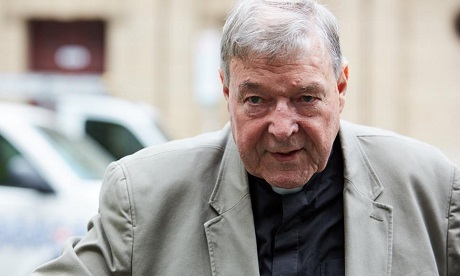Australian Cardinal George Pell’s days in court may continue for some time, with a Vatican court trial on the cards.
He is currently in custody, waiting for three senior judges to consider his appeal against his conviction for child sexual abuse.
Pell was jailed in February for six years, with a non-parole period of three years and eight months, after being convicted last December of several child sex offences.
Regardless of whether he wins or loses his appeal, he may find the Vatican will also want to examine his case in court.
A lecturer in canon law at a pontifical university in Rome, who prefers to remain anonymous, says if Pell were tried at the Vatican, three judges would need to be involved.
“The two legal systems, that of Victoria [the Australian state where Pell is appealing his convictions] and the Vatican, are independent of one another.
“Canonical (Catholic Church law) trials can judge Catholic faithful independently from states,” the lecturer says.
Therefore, if the Vatican were informed of a crime, canonical justice would investigate it “in any case”, with the accuser represented by the “Promoter of Justice”.
The lecturer went on to explain that there are two types of Vatican trial.
One is a trial by three judges, including a chief judge who conducts the trial. The trial involves interrogating, verifying documents and arranging psychological assessments.
At the end, the chief judge receives the comments the prosecution and defence make on all the evidence.
Only then do the judges pronounce their ruling, and sentence if appropriate.
If the person who has been convicted disagrees with the judges’ decision, they can appeal the sentence through the Vatican Congregation for the Doctrine of the Faith.
The lecturer said the second and more likely type of trial was an administrative one.
In this type of trial, all possible proofs are collected and the accused is heard. Pope Francis, or someone nominated by him examines these and then tells the accused exactly what he is being accused of. The accused is then given time to prepare his defence.
As is the case with the first type of trial, the chief judge discusses the evidence with the other judges and makes a ruling.
Again, the option of appealing the sentence through the Vatican Congregation for the Doctrine of the Faith is available.
The lecturer said the court in Melbourne could opt to share all evidence and documents with the Vatican trial judges who would take “more or less a year” to rule on the case after a “not secret but reserved” trial process.
If it chose to, the court in Melbourne could opt to share all evidence and documents with the Vatican trial judges.
The lecturer said it is likely it would take “more or less a year” to rule on the case after a “not secret but reserved” trial process.
“Those who don’t believe in the Church’s honesty won’t believe in such a trial. Those who believe Church law is being respected, even if they don’t have first-hand knowledge of its proceedings, will still trust it,” the lecturer said.
Source
